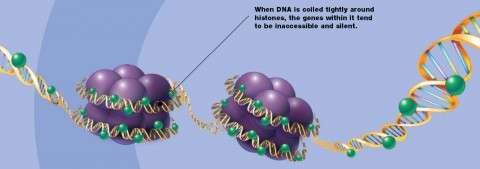Histones A new route to the nucleus Biology Diagrams Histone acetylation is a critical epigenetic modification that changes chromatin architecture and regulates gene expression by opening or closing the chromatin structure. It plays an essential role in cell cycle progression and differentiation. The Yang, H. D. et al. Oncogenic potential of histone-variant H2A.Z.1 and its regulatory role in cell cycle and epithelial-mesenchymal transition in liver cancer. Oncotarget 7 , 11412-11423 (2016).

Download: Download full-size image Fig. 1.. Model depicting the role of histone acetylation in regulation of cellular development. (a).The heterodimerization of cell cycle regulatory factors Max with transcriptional activator Myc supports the formation of multiprotein complex and recruitment of histone acetyltransferase.

Role of histone acetylation in cell physiology and diseases: An update Biology Diagrams
The acetylation of histones by a number of histone acetyl transferases (HATs) also plays an important role in coordinating gene expression and cell-cycle progression. Components of the cell-cycle regulatory apparatus are both regulated by HATs and bind directly to HATs. Finally transcription factors have been identified as substrate for HATs. A putative role for Rad53 as a super-integrator of different signals will be discussed. Advertisement. 2. DNA replication: a crucial event integrated in the cell cycle Finally, therefore, it is interesting to wonder about the processes generating excess histones during the cell cycle (reviewed in Singh et al., 2009).

For instance, HATs can acetylate histones at specific sites to promote DNA replication and ensure accurate chromosome segregation during mitosis. Furthermore, histone acetylation can regulate the expression of genes involved in cell cycle control, such as cyclins and cyclin-dependent kinases, thereby influencing the progression of the cell cycle.

Where the cell cycle and histones meet Biology Diagrams
The expression of histone variants throughout the cell cycle allows them to participate in genome S. B. Variants of core histones and their roles in cell fate decisions, development and cancer
